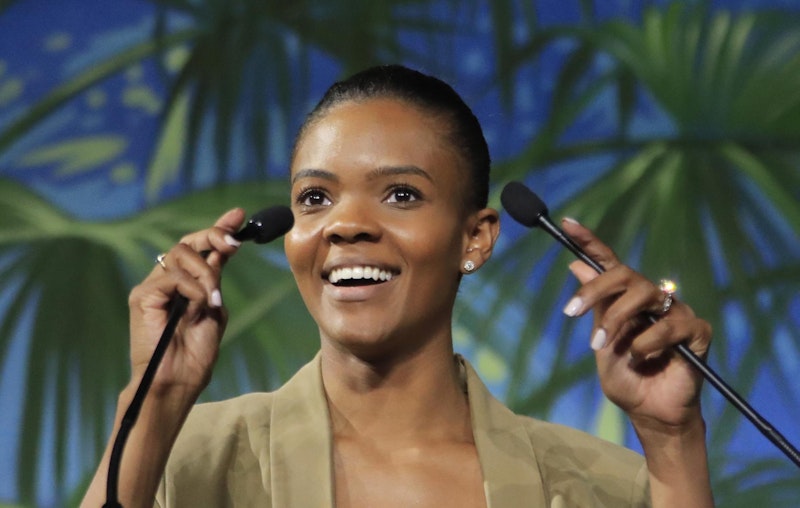The egocentric model of the political universe states that the earth and moon revolve around the social media star Candace Owens: a white dwarf of black conservatism, or a mass of ignorance and pride, with little luminosity. The proof of this assertion lies in Owens’ use of argument by assertion, as well as her arguments from ignorance. The two define how she misremembers and misinterprets history, from the history of blacks in America to the pursuit of equal rights for all Americans. The same is true for world history and those regions of the world about which Owens knows nothing.
Take, for example, the first paragraph on the first page of Owens’s memoir, Blackout: How Black America Can Make Its Second Escape from the Democrat Plantation, in which she asks why being a black Canadian or a black Russian doesn’t carry the same weight as being a black American does. The supposition is that race matters less in Canada, or has no weight in Russia, because no other country brands a people with the mark of victimhood—and refuses to honor the mark written on their foreheads by their Creator, signifying liberty and justice for all—except America. Or so Owens says, in her overview of the struggle for the nation’s soul.
How good of Owens to be as good as the angels who weigh and judge souls, despite the injustice she does to history, for she’s deaf to the chords of memory and the lyrics of the “Song of the Free,” an anthem of the Underground Railroad. She has no ear for the songs and spirituals of the passage from the South to the Great White North, where the land across the water—the glory land of Canada—is the home of the free.
The point isn’t that Canada is free of racism, or that racism is a color war of white against black, but that Owens ignores the importance of Canada to blacks in America. She says nothing about a King’s praise of the Canadas under a British king, or of the word for the kingdom of heaven on earth, in which Canada is the Canaan of North America.
She knows nothing about Russia either. Unless, of course, she reads the Russian masters in the original. And yet she’s silent about the moon above the steppes, but skeptical about the footsteps on the moon. She can no more recite a line by Alexander Pushkin than she can cite the importance of his lineage, because she doesn’t know that Pushkin’s great-grandfather was black.
Maybe Owens should calibrate her scale, the one she uses to measure race and nationality, or do away with it altogether, placing it alongside the chains of slavery and the calipers of race science. Or maybe we should tell her that diverse weights are wrong, and dishonest scales aren’t good, because the balances of deceit are evil.
We can also do nothing, letting Owens become foolish so that she may become wise, because a fool has no delight in understanding.

